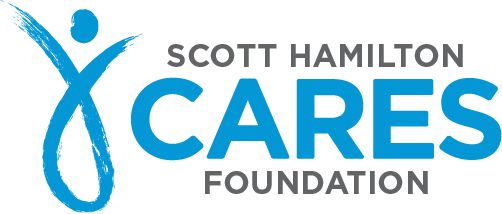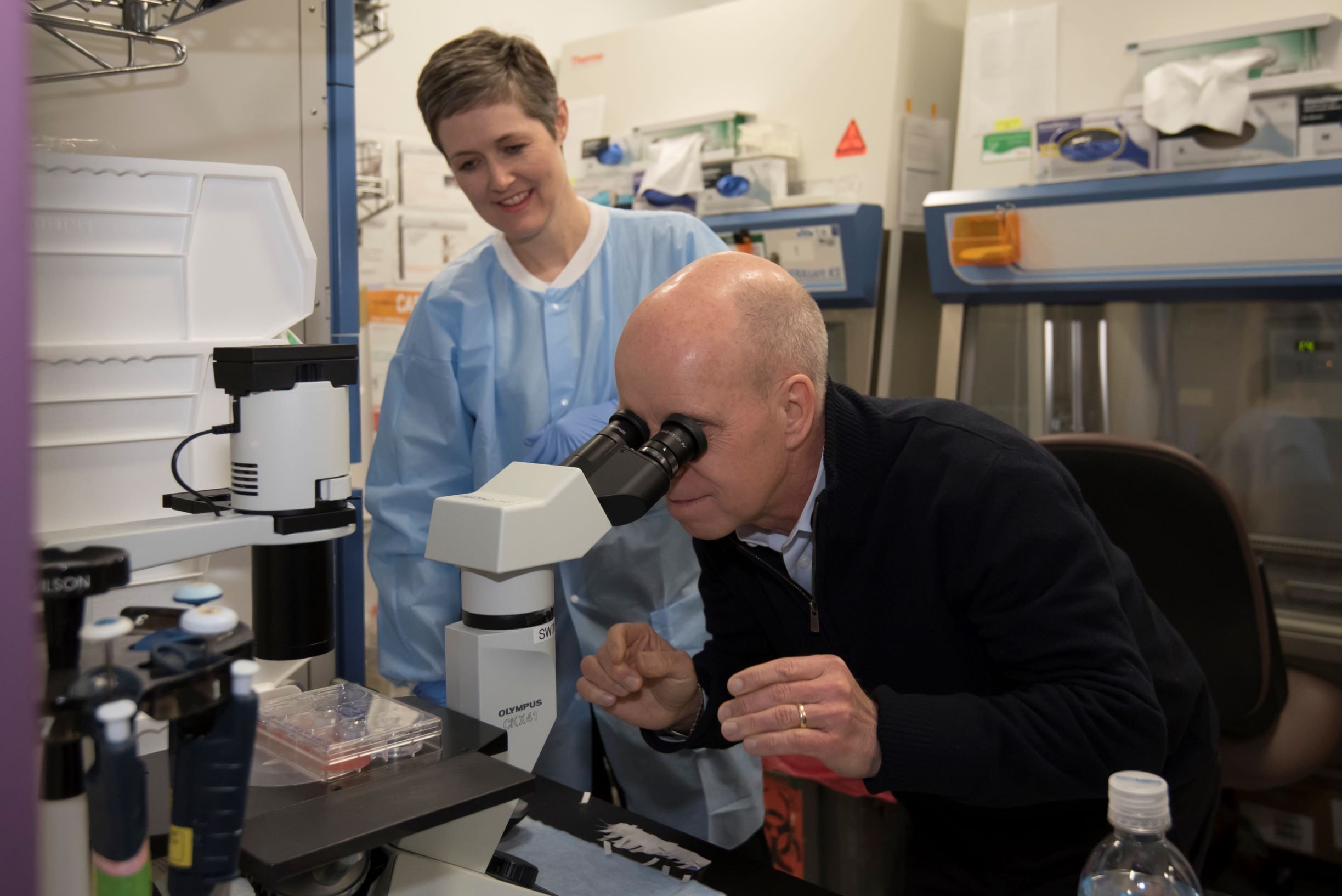Julie Macpherson, Survivor
“I started having progressive shortness of breath in the spring of 2019. It became pretty apparent while on vacation in Peru, but I thought it was due to the altitude. When I got home from vacation and throughout the summer, my shortness of breath had worsened to the point where I was struggling to exercise. Being that I still skate competitively, and I have a lot of very active hobbies like biking and kayaking, it was very unusual for me to have such a hard time tolerating exercise. I brushed it off as worsening of asthma (I'm a physician and we are self-admittedly the worst patients ever..), and I started a new asthma medication regimen. Fast forward another month or so, and I was so short of breath I was struggling to catch my breath just while talking to my patients at work. Around the same time (late August), I also noticed my heart would start racing when I did anything even remotely active (walk up a single flight of stairs, putting sheets on the bed), and I started feeling quite fatigued.
I had a few co-workers mention that I was starting to look pale, so with the constellation of other symptoms, I decided it was time to get some blood work. I had a colleague order a few basic blood tests, and I found out that my Hemoglobin had dropped to 6. (normal for me is about 13). Quickly after that, I got connected with a hematologist who admitted me to the hospital for a blood transfusion, followed up by two outpatient IV iron transfusions.
After that, I felt a TON better. My shortness of breath was almost completely resolved. I had started skating again (I had only taken about 2 weeks off even though I was not feeling well) and was feeling back to my self for the first time in a long time. Unfortunately, that was not the end of the story.
About 2-3 weeks later, I started showing pallor again (initially pointed out by a few teammates) and the shortness of breath and racing heart had returned. I was admitted to the hospital a second time, and my hematologist ordered at CT scan of my chest, abdomen and pelvis because my elevated heart rate was so out of proportion to my level of fitness and overall health.
On 10/15/19 I found out I had a tumor in my stomach, and it was confirmed later that day when an EGD and biopsy of the mass showed a Gastrointestinal Stromal Tumor, or GIST. The tumor had a large ulcer which had been bleeding, which led to my significant anemia and other symptoms. I had the 7 cm tumor removed on 11/11/19, but unfortunately it ruptured during my surgery and I needed to be completely opened up for them to clean out all the cells. Although it was suspected, I did not officially find out the tumor was cancerous until 11/16, which was the day I was also discharged from the hospital to start my recovery at home.
Initially my treatment protocol was scheduled to be a minimum of 36 months of oral chemotherapy, but I started doing a lot of research after I was discharged from the hospital because my case was so unusual. I got in touch with the GIST International Support Group, and the Life Raft Group, and members from those organizations and other fellow cancer patients helped me to be able to ask the right questions and get to the best GIST specialist in my area. After many additional genetic tests were done on my tumor, I found out that it was an even more rare variant than the standard GIST, and would not respond to the chemo drug I was slated to start in the following days. The good news was that I would not have to take the chemo because it wouldn't be helpful, and also because my GIST variant is slower growing and less likely to return. However, the bad news was that if it did return, (as of now) there are no targeted chemo drugs available for this type of cancer and surgery would be my only treatment option. As of now, my treatment protocol is close observation, with repeated CT scans every 3 months for at least the first 3 years, then can space out after that assuming I am doing well. I am happy to report that my first follow up CT scan at the end of January showed that my surgery was a success even with the tumor rupture. The tumor had been completely resected and I had no new tumors develop in the interim.
I know this probably sounds cliche, but I truly believe that skating helped to save my life. If it weren't for me recognizing that I was too short of breath to skate, or for my teammates who pointed out that my pallor had returned which prompted another hospital admission, or my Hematologist repeatedly stating "she's an athlete, her heart rate shouldn't be so high" and pushing for more testing to find a diagnosis... I am not sure my outcome would have been the same. GIST tumors are known for spontaneously rupturing, which can be fatal with in a very short period of time if not recognized.
One of the hardest moments after my diagnosis was telling friends, family and co-workers. I specifically remember making 3 phone calls right after I found out they had found a "large mass" on my CT scan. I called each of my parents and also my boss to give him an update, and each time I had to repeat the phrase "they found a mass", it hit me harder and harder, to the point where I had to choke the words out. The realization of it only started to sink in when I had to start sharing the news.
My biggest source of support during this time was my family, friends and skating family. I tried to keep some routines as normal as possible, so I continued to regularly attend practices and competitions to be with my team and feel that sense of normalcy, even if I couldn't skate. I was also fortunate to find the online GIST-specific support groups early in my diagnosis, and the members there also provided a lot of support, hope and knowledge. They taught me that being my own advocate was the best thing I could be as a cancer patient and it was crucial to know as much as possible to be able to ask the right questions to get the best care available. Also, hearing from others who are actively fighting and winning brought me immense amounts of hope. I also was blessed with an amazing medical team who helped me to "elimin8" my cancer and build strength and balance so I could return to the ice as soon as possible. Due to their expertise and lots of hard work, I was able to compete at the US Synchronized Skating Nationals this past February, only 15 weeks after I had open abdominal surgery, and 4 weeks after I found out I was cancer-free!
If I could offer one piece of advice to the CARES community of fighters and survivors, I would say to be your own advocate and learn as much as possible about your disease. Join a support group and learn from others who are fighting the same fight. Ask lots of questions, and then ask some more. Take things one day at a time, but remember that having a positive attitude is EVERYTHING! If you tell yourself you can overcome, you will!”
-Julie MacPherson




